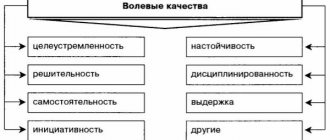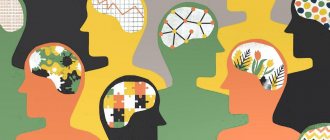Whoever has once found himself cannot lose anything in this world.
And whoever once understood the person in himself understands all people S. Zweig
Self-knowledge begins from the moment you become aware of yourself. This process is embodied very early, even in childhood, and reaches its peak in the years of adolescence, when the thirst for knowledge is great, the mind is insatiable, demands new discoveries and impressions, and the soul strives for high goals and it seems that it is possible to embrace the immensity.
All this is exactly so, but with the burden of responsibility that social status imposes, new responsibilities, and simply the daily whirlpool of events carries away with its speed, a person forgets about the purity of impulses that once filled his life with meaning. And now, realizing the vanity of existence, he looks back, sees himself in the past and realizes that something is missing in his present life. Is this why she began to seem ordinary to him, so predictable?
Yes, there is stability in it: he has achieved recognition of his merits, he is valued by colleagues and respected by friends, there is stability in the family and support in life. However, this vague feeling inside does not cease to excite us and the fact that all this surroundings, the external component of being, does not exhaust the diversity that life can offer us.
No matter how unique and beautiful the experience of living in society may be, constantly encouraging us to serve our egregor, nevertheless, the material component of life could not exist if there were no inner life, the one that happens inside, is manifested by the work of consciousness and mind. It is the most important thing in a person, what is hidden from view, but from where we draw strength to implement projects; she is a source of inspiration and creativity; the place where consciousness and soul live; a reflection of all that is purest in every person.
In moments of misunderstanding by others, it is this source that you will turn to in order to regain self-confidence. This is the inner pulse that connects us with the Absolute. It contains the entrance to the countless kingdom of knowledge and virtues. You need to be able to use it, find the key to it. The inner world of a person is huge. What we habitually call the inner world are just approaches to it. To recognize the entire Universe hidden behind the inscription “inner world,” we resort to a technique called self-knowledge.
Results of self-knowledge and the process of self-knowledge
In the course of self-knowledge, a person gets to know himself. This knowledge can be divided into groups. For example, emotions, character traits, behavioral characteristics, intellectual properties. They are also called constructs. They form a self-image, on the basis of which the self-concept is formed.
If we highlight the general results of self-knowledge, then this is a sense of personal competence. What does it consist of? The first is the feeling that we are all similar, i.e. identical. And the second is that we accept ourselves entirely and completely, with pros and cons, positive and negative qualities. A person does not resist himself, while he has a desire to grow, develop and change something in himself, but this happens gradually.
As feelings of identity and self-acceptance emerge, self-esteem emerges. This feeling expresses the degree of sympathy a person has for himself.
And, identity, self-esteem and self-acceptance contribute to a sense of self-competence. How does it manifest itself? In the fact that a person accepts himself, his characteristics, he can make important decisions himself and determine his destiny.
The structure of self-awareness and self-concept
Personality orientation - what is it in psychology, its types
As a result of self-knowledge, a person’s system of ideas about himself is created, called the Self-concept. This is a fairly stable formation, recorded in verbal form. The self-concept is divided into three components:
- Cognitive. It comes down to a person’s awareness (correct or not) of his characteristics over a long period of his life. For example, if someone considers himself strong, this does not mean that he is currently carrying heavy things. It’s just that in the process he realized that he was able to lift difficult objects. Moreover, perhaps he is not really strong at all. I just felt like this after the first successes appeared in the gym.
- Estimated. Based on perceived characteristics, a person analyzes their modality.
- Behavioral. The objective component of the “I” concept. Describes what actually happens.
Self-knowledge allows you to understand your true personality
Interesting. G.E. Zalessky identifies two components of self-concept: cognitive and motivational. The first determines the content of a person’s ideas about himself, the second determines a person’s self-esteem, goals, motives, and emotions.
The process of self-discovery
The process of self-knowledge is a complete awareness of oneself, character, and essence. By the way, it is self-knowledge that distinguishes a person from other inhabitants of our planet, for example, animals. In all beliefs and religious movements, self-knowledge is defined as a means of recognizing and understanding one’s community with God. This is especially evident in Eastern religions.
It is quite simple and clear that a person determines his life path. Chooses between several options, sets a goal, performs actions, interacts with others. Thanks to this, he begins to be an interesting person, both to those around him, and he begins to enjoy spending time with himself.
Developmental psychology A. Maslow
Maslow's psychology is also humanistic in nature. He paid great attention to research and identified the main qualities of a self-actualized personality, such as: independence, creativity, philosophical humor, the need for solitude and others.
He believed that humanity is on the threshold of a new psychology, which will allow people to fully reveal their potential and abilities, considering a person as a single and integral mental system. Self-knowledge and self-development of the individual underlie theories of the formation of this personality.
Maslow's Key Findings
- Each person has a special original nature, which is received at birth.
- A person develops throughout life and can develop the data that he received initially. At the same time, the environment (family, school) significantly influences further development.
- Nature has given man the presence of instincts and desires, but over the years, “voices-impulses” reduce their strength as a result of receiving education and total control over oneself. It is these voices that help determine what exactly a person needs, what arouses interest, what he is capable of, and not just what meets the norms and rules of society.
- Personality characteristics may be similar for different individuals, or they may be unique, with their own characteristics. Everyone has needs for love, respect, understanding, and there are personal properties and abilities.
- Human nature is studied both by science and by man himself, using self-knowledge and psychiatric methods.
- Most of the internal, deep thoughts and instincts are suppressed by us and pass into an unconscious form as a result of constant fear, fear of condemnation.
- The inner strength of human nature still remains, periodically makes itself felt, and provides an incentive to develop and find oneself.
- The basis of a person lies in what was given initially; it is important to be able to understand and accept oneself. Moreover, in choosing on the path of life, the main criterion should be the opinion of the individual, not society. Personality is dynamic and tends to develop throughout life.
- The inner essence of a person can be subjected to difficult tests, misunderstandings, and feel rejected in life. Often this leads to real illnesses on a mental level. Difficult situations are considered to be the loss of personality, one’s peculiarities, defining properties, when there is no opportunity to achieve one’s projection, a representation of one’s Self.
- Inner strength is initially positive, the main thing is to learn to use it for good, to stimulate the development of creativity, kindness, altruism, and the ability to love.
Secondary qualities
- Conscience or guilt is an indicator of a person’s correct behavior; it is compared with internal attitudes and values. It is worth listening to your conscience, it will show the way to find your true Self.
- Accepting and loving yourself as a person is necessary for a full and healthy life!
- Self-knowledge is the only, main way of personality development.
- Self-knowledge and self-development require significant efforts of the individual.
- It is important to understand the impact of defense mechanisms - regression, defense, self-preservation. By studying psychiatry, you can understand that realism is also needed in life, since false optimism ultimately leads to disappointment in life.
- The theory of free upbringing assumes that the child himself feels what is for his good; he should be given more freedom of choice and action, and not constantly driven into the framework of requirements.
- Only by following the path of understanding and accepting one’s essence, purpose, and satisfying the needs of the individual, one can become a real person and reveal one’s potential. First of all, we are talking about spiritual needs.
- It is important to remember that without difficulties and disappointments . Therefore, a child must be taught to endure the difficulties of life, while the love of parents and their support is the basis for the formation of a strong personality. Abuse of guardianship can lead to infantilism and inhibit the development of willpower.
- A mature personality is distinguished by a type of cognition . D-cognition and B-cognition are distinguished. Moreover, D is selfish , aimed only at one’s own needs, and D is selfless , the ability to do good, to take care of others. The vector of attention of a person with D-cognition is directed more to the outside world than to purely personal interests.
- For a normal life, a person needs a system of values , his own coordinate system, which will allow him to exist in this world. To create such a system, it is important to study yourself, understand goals and motives, what is good and bad, what has a positive impact on your own dignity.
- A person who can be friends with the unconscious level is often inclined to creativity, and aesthetic education should be the basis of education , psychology and all life.
- An important task becomes - to be above ordinary human problems and troubles , to have a simpler attitude towards life, to form a real and healthy perception of life.
Thus, Maslow’s theory involves the search for one’s inner core, self-acceptance and personality development, harmony with the world around us.
Ways of self-knowledge
- Self-observation is considered the beginning of the entire process of self-knowledge. During it, a person observes himself. Using this method, a person increases his awareness. Here you must focus on what is happening inside you, on what feelings you are experiencing.
- Introspection. When you analyze yourself, you look at your behavior and reactions. You are trying to understand why you did what you did and nothing else. Psychologically, self-analysis is considered the most difficult.
- Comparison. Here a person, willy-nilly, compares himself with others. This is their nature. As a result of comparisons, a person gets to know himself better.
- Self-acceptance. Here a person accepts himself completely and without reserve. He is aware of his strengths and weaknesses and is ready to improve himself.
Definition of the concept
Self-knowledge in philosophy – what is it? For the first time, the problem of the need to study one’s personal characteristics was raised by Plato in the dialogue “Protagoras” with a number of other philosophers of Ancient Greece: Thales, Pittacus, Biant. Then they came together and defined self-knowledge as the germ of wisdom.
Later, this process was identified as a driving force for personal growth by Carl Rogers, one of the representatives of the direction of humanistic psychology. Without it, he argued, it is impossible to feel the fullness of life and realize its meaning.
Personal self-knowledge in philosophy is a more general category than in psychology. This is a full-fledged scientific method. The peculiarities of self-knowledge in this scientific discipline are that most scientists look for answers to the basic questions of the universe within themselves and advise everyone to do so.
Self-knowledge is an important part of self-awareness - a person’s ability to understand himself, his actions and needs, thoughts, feelings, reasons for behavior, strengths and weaknesses. This is a mental phenomenon that allows a person to define himself as a subject of his own activity. As a result, all ideas of the personality are combined into the “Image-I”.
Self-knowledge - studying the characteristics of one’s own personality
Man is not born aware of himself. In infancy, self-knowledge manifests itself only in the form of inclinations, when the baby notices that certain events occur as a result of his actions (threw a toy - it flew). Self-esteem and awareness of personal qualities begin to form only in adolescence. Some people never develop an adequate ability to know themselves. As a result, they exhibit high or low self-esteem with a corresponding attitude towards other people and their activities.
Self-knowledge is aimed at the person himself, but does not lose sight of other people.
Types of self-knowledge
There are several types of self-knowledge. Among them:
- Analytical – has a connection with the activities of our mind;
- Creative – connected with our feelings;
- Spiritual – associated with our religion, faith.
There are also indirect self-knowledge (when a person analyzes his own behavior) and direct self-knowledge (self-observation).
Analytical self-knowledge
Analytical self-knowledge occurs as a result of knowing oneself and observing oneself. A written analysis during self-observation helps to get to know yourself better. For example, keeping personal diaries. Another way is self-confession. In this case, you need to tell yourself about yourself. Sometimes this can be quite difficult, because defense mechanisms come into play. A psychologist can help here. But reflection is different from confession, because you will simply observe the process, without any assessment of yourself.
Human creative self-knowledge
Such self-knowledge allows you to get to know yourself better through games, going to the theater, general activities and social events. For example, playing in the theater. It has a positive effect on the psyche because internal resistance disappears. After all, this is a game, and the person there is an actor. This is where deep self-knowledge occurs.
Spiritual self-discovery
In this type of self-knowledge, a person chooses a certain method of spiritual self-knowledge. This could be yoga or spiritual practices. And using this method he begins to get to know himself, to analyze his own actions.
Types of self-awareness
Self-control - what is it in psychology, definition
Self-awareness is a more general category. The following levels, forms and types of self-knowledge are distinguished (they manifest themselves to different degrees in different people):
- Self-control. It is managing your thoughts and actions based on the demands of society and personal goals.
- Self-knowledge is food for the other components of self-awareness. As a result of this process, a person understands what his goals, values, and motives are. Self-control is carried out on their basis. For example, achieving any goal requires getting rid of immediate pleasures. To protect yourself from harmful but pleasant things, you need self-control. First you have to understand why you should suffer so much in the short term. An example of self-knowledge is meditation, when constant observation of oneself occurs.
- Self-esteem is a person’s determination of the extent of his ability to achieve a goal, the quality of actions performed, the significance of his actions, etc. It is not always an obligatory component of self-awareness at the current moment in time. For example, a person can observe his inner world directly, without evaluating his thoughts and emotions.
- Self-acceptance.
Clarification of the inner world
Self-knowledge, as the basis of self-awareness, occurs as a result of:
- Analyzing the consequences of one’s own actions and relationships with other people. A person compares his actions with social norms, as a result he defines his behavior as right or wrong, useful or harmful.
- Analysis of other people's assessments, i.e. how actions are evaluated by other people.
- Observations of your inner world. It can be carried out both directly at the moment of activity or communication with other people, and as a result of the analysis of memories.
According to Varlamova, self-knowledge is a creative search in solving personal difficulties.
Stages of self-knowledge
A person gets to know himself throughout his life. At each age stage, corresponding stages of self-knowledge occur.
- Self-recognition
Self-recognition is the initial stage of knowing yourself. It begins almost from the moment of birth. The child understands that he lives as a separate person. Look in the mirror, he recognizes himself.
- Self-concept
Self-concept is a person’s very stable understanding of himself and his characteristics. This concept is formed in the process of various life events.
- Self-esteem
Self-esteem determines how significant a person is to himself, how important his activities are, recognizing all the pros and cons. Here, the achievements of the person himself and his assessment by the people around him occupy a significant position.
Values in self-knowledge through yoga practice
Thanks to yoga and various spiritual practices, people can understand their inner world and become more aware of themselves. In yoga there are several steps that you need to go through. Thus, a whole list is formed, thanks to which a person has his values in order; a special place there is occupied by spiritual values, to which he strives throughout his life.
Need for self-knowledge
People often ask questions about the meaning of life and true values. How can a person understand himself and those around him? Such questions are the basis for the need for oneself. This need is inherent in every person. People are in an eternal search for the meaning of life; it comes first for them. After all, until we understand the meaning of life, we will not learn to understand ourselves.
Inner peace and self-knowledge
Where is the meaning of life? It is logical that it is inside us, not outside. When we understand this, our lives begin to change. From here appear monks who sell their Mercedes and say goodbye to their past life. It's not that simple here. Such people choose the path of spirituality, not because they feel like it right now, but in a week they will return back to their normal life. Here we are talking about the fact that they follow the path of spirituality throughout their lives.
Personal growth as a stage of self-knowledge
As a person develops, his or her level of self-knowledge increases. For example, at the beginning the child learns to distinguish himself from other people. Further, as he grows up, he develops beliefs about himself. And then he finds motivation that encourages him to improve his life and develop.
The path of self-discovery
The path of self-knowledge is so close, and at the same time its horizons are boundless, that a person sometimes does not know where to begin his journey on the path to himself. But you just need to start, awaken the desire for self-recognition, internal growth of yourself as a person, and at the same time a passion for self-improvement will appear. They are like twins: they are similar to each other, the development of one implies the inclusion of the other in the work. Self-knowledge cannot live without self-improvement.
Self-improvement - the desire to achieve the Absolute, getting closer to the ideal
The process of self-improvement is immanent in human nature to the same extent as self-knowledge. The pursuit of ideality is what we live for. Perhaps this is said loudly, and yet every person has a thirst for self-realization, we cannot underestimate this. Due to the desire to realize oneself through various aspects of life, a person constantly strives to improve his knowledge and skills. On this road, he also reconsiders his goals, which are based on values.
Changing value categories leads to transformation of the personality itself. Often the process of transition, finding oneself, is accompanied by changes in a person’s external life: his environment, friends, place of residence, and occupation change. One thing remains unchanged - the desire for self-improvement through self-knowledge.
Methods of self-knowledge
Self-knowledge occurs at the moment when a person begins to realize that he is different from others. What methods does the person use?
- Personality modeling. This method detects emotions. Positive and negative emotions and feelings towards people that contribute to successful cooperation or provoke conflicts. This method allows you to assess your position in the world around you.
- Method of unity of antipodes. Thanks to this method, a person understands that he has a positive attitude towards someone and a negative attitude towards someone. You definitely notice that you behave differently with different people.
Developing Self Awareness
Depression - what is it in psychology
Different scientists have different views on the problem of improving this quality. For example, V.M. Bekhterev believed that self-awareness in a child is formed even earlier than consciousness. S. L. Rubinstein was convinced that self-awareness develops in the process of mastering speech and making the first attempts to act independently. Simply put, the onset occurs at the age of 2-3 years.
Self-knowledge begins with the child understanding the boundaries of his body. The stage begins in one year. We can assume that from this age self-awareness begins to form. A one-year-old child demonstrates independence in manipulating objects. A little later, self-recognition appears - this is the ability to understand that the reflection in the mirror is oneself.
Self-knowledge - studying your thoughts
Around the age of three, a child learns to use the pronoun “I”. He can also give himself the simplest characteristic – “good”.
Subsequently, the intellect is actively formed, thanks to which the ability to evaluate (first other people, then oneself) is acquired. Self-esteem still depends on the opinions of adults. A preschooler learns to be aware of himself in time.
The following neoplasms are typical for primary school age:
- Self-esteem tends to become more relevant and differentiated. A boy or girl distinguishes between his physical and mental traits, evaluates his own abilities based on the results of others.
- At the end of primary school age, the child increasingly describes characteristic behavior and can refer to thoughts and feelings characteristic of his inner world.
- Assessments acquire stability, objectivity, and begin to have not only an affective, but also a rational component.
In adolescence, self-awareness gradually becomes the same as in adults. This period is characterized by a large number of neoplasms, in particular the following:
- Two new forms of self-awareness gradually emerge: a sense of maturity and a self-concept. The teenager begins to feel like an adult.
- Interest in one’s own inner world, which leads to the complication of the processes of self-knowledge. Simply put, during adolescence, a person begins to explore himself.
- Self-esteem is generally low and unstable, but can be excessively high (as a compensation mechanism). One of the reasons for this is the attitude of adults as if they were a child, although the person no longer feels like one.
Important ! The process of forming self-awareness is not limited to adolescence. This is an endless process that continues until the end of life.
Means of self-knowledge
Knowing the methods of self-knowledge, a person begins to use means of self-knowledge that help him develop his spiritual world. Such tools help you better begin to understand yourself.
- The first means is self-report. You can start a personal diary or blog where you can analyze the changes taking place in your life.
- Cinema, books, theater. It is necessary to read, go to shows, developing spirituality.
- Attending social and psychological events. Trainings help you to know yourself better.
- Don't be afraid to consult a psychologist. This is not a doctor, he will simply help you understand yourself better.
Be faithful to the path of self-discovery
- When it comes to knowing yourself, no one can do it for you. Of course, it will take some time to understand all of your personal qualities, what you value, and even your path in life.
- There are many ways here that will allow you to realize who you really are. Even if you clearly know your values in life, it is difficult to remain true to yourself, because we all tend to change, and the principles of society often contradict your own.
- “Be yourself” sounds easier than it actually is. But when you become familiar with one of your “life values,” a feeling of excitement will arise. By acting on the basis of self-knowledge, you will gain energy and retain it.
- You will feel freedom and strength because you will no longer conform to imposed standards.
- Use all of these steps or just the ones you like best. Each of them leads to a path of self-discovery that will bear fruit throughout your life.
Self-knowledge and self-esteem
Self-esteem is one of the components of self-knowledge. A person evaluates himself and builds his own value system. Self-esteem can be normal (adequate), underestimated or overestimated.
It's no secret that arrogant people are too self-confident and have low self-criticism. Low self-esteem causes timidity, making a person withdrawn and shy. And adequate self-esteem allows a person to be confident in himself and evaluate his capabilities and strengths without distortion.
Self-concept theory as a stage of self-knowledge
When a person has formed an idea of himself, it is called self-concept. It includes: the personal “I” and the social “I”. The first shows how a person sees himself. And the second is how other people understand it.
This theory is based on two aspects: the desire to come into harmony with oneself and the opportunity to raise one’s self-esteem.
Self-concept has 2 vectors:
- objective is how we perceive ourselves in our lives;
- aspirational is a desired image of how we want to be perceived.
A person will always strive for the desired image in his life. This image can be based on a person in the past and at the present moment. Now the person has achieved significant results. Over time, the distance between the desired and the actual will shrink until it disappears.
The importance of self-knowledge in human life
In youth, a person sets high goals for himself, realizing that self-awareness is the path to enlightenment. By acquiring social status, duties and responsibilities, a person may lose the nobility of impulses that previously gave meaning to life. And existence itself becomes commonplace. At such a moment, it is important to be able to find positive aspects where previously only negativity was observed. This gives additional strength to accept these properties and plays a very important role in improving oneself. A person who is aware of himself as a person is familiar with his own characteristics, differences from others, and can make comparisons. All this will improve the understanding that self-knowledge is the path to enlightenment.
Self-discovery exercises
These exercises allow you to better understand yourself. Thanks to them, a person improves himself.
For example, you can perform the exercise “4 squares of the psychology of consciousness.” You need to divide a sheet of paper into 4 squares. In the first you need to write your positive traits and qualities, in the third you need to write what you think are negative qualities. Then you need to write in the adjacent squares the antipodes of these qualities, completely opposite. You need to be as honest with yourself as possible and understand that there are no absolutely ideal people and personality traits. You should improve yourself and focus on the positives while working on the negatives.
Basics of self-development and characteristics
The basics of self-development presuppose that a person has the ability to shape his life and achieve his tasks and goals. In addition to activity, this process is also influenced by human activity. He can be socially active (initiative, executive) or socially reactive (impulsive, passive). Social activity goes through the following development paths:
- Standard level : schoolchildren, imitation, repetition of actions.
- Normative-personal - the teenage period, one’s own outlook on life and attitude to certain issues appears.
- Personally productive, productive and creative - an adult who makes a contribution to social life, creates innovations, modernizes the old, introduces elements of creativity into the process of life.
Indispensable conditions for self-development are initiative, and later - consciousness and independence. Social activity contributes to the development of abilities to make one’s own choice of development paths along the path of life, and responsibility for one’s actions appears. Development is impossible without achieving the necessary level of self-awareness, understanding and analysis of one’s personality.
The foundations of self-development directly depend on a person’s inner world and his analysis of real life and the situation at a given stage. The inner world is unique and is partly a reflection of the outer world. There are also suggestions that it develops throughout life, together with the personality itself, under the influence of the surrounding reality.
There are several stages of self-development
- revitalization (the child learns to communicate, understand his individuality),
- animation (the child masters the outside world),
- personalization (learning the rules, norms of life with mentors and understanding one’s role in creating a life story),
- individualization (in the process of communication, an idea of one’s personality is formed, characteristics are revealed, and the need for introspection and responsibility for oneself arises),
- universalization (a person goes beyond his individuality, unity with superhuman values, faith or spirituality appears).
The foundations of self-development lie in a person’s desire for self-improvement, improving his self throughout his life.











